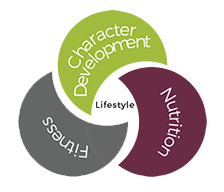When we educate consumers about achieving financial freedom, goals come up early and often. Setting goals is an essential early step for anyone who wants to achieve success, whether that involves financial, personal, career, spiritual or any other area of individual achievement.
Here are 7 ideas to consider that can help you make your goal-setting more successful:
1. Set a concrete goal. A goal isn’t the same as a wish. You may tell yourself you want to be out of debt or have more money in the bank, but making it a real goal means writing it down and having a specific end point. How much money do you want to have in the bank? By when? If paying off your debts is your goal, calculate an exact figure and prioritize your debts.
2. Break your goal down into steps. You can’t focus exclusively on the end result of your goals; you need to determine what actions you’ll have to take along the way in order to get there. If your goal is to build up your savings, you need to determine how much money to add to your savings fund every month, every week, or even every day if necessary.
3. Figure out what you need to acquire to achieve your goal and get it.If you need to open a new savings account, do that before you start accumulating money. Have a place to put it before you set it aside and you’ll be less likely to spend it. If your goal is to further your career, figure out what skills you need to acquire and how you’ll get them: college, night classes, books, etc. If there’s something you lack that is keeping you from getting your goal, get it right away and eliminate that obstacle.
4. Tie it in with a whole list of other goals. You should have goals for multiple areas of your life. Your financial situation is only one part of the picture. What are your goals for your personal relationships? Your health? Your home? Keep all of your goals in mind and don’t leave out any essential part of your life while you’re focusing on your finances.
5. Don’t get dragged away from your goal. You must always know what direction you should be moving in, and stay on course. If your goal is to build savings, and you run up credit card debt, you’re not only failing to achieve your goal, you’re moving in the opposite direction.
6. Every day ask yourself what you’ve done to move forward. Evaluate your progress at the end of each day. Did you make progress toward your goal? If you’re trying to build savings, know how much you added to your savings account every day. If you didn’t set anything aside that day, you should be aware of it so you’ll do better the following day. If you’re working toward being debt free, figure out how much progress you made toward paying down your debts that day. Ask yourself if you spent money on anything that you shouldn’t have. Confront each day as it ends and resolve to do better the next day.
7. Stay flexible and don’t get discouraged. Setbacks will happen. Sometimes your goals may need to be completely overhauled. This is normal and shouldn’t be a problem. If something more important comes along, you shouldn’t cling to a goal that’s a lower priority just because you thought of it first. Revise your goals as needed so you’re focusing on the most important thing facing you today. If you evaluate your progress and find that your goals were too ambitious, revise them to something more attainable. Better to ratchet down your goals to something more realistic than to abandon them altogether.



